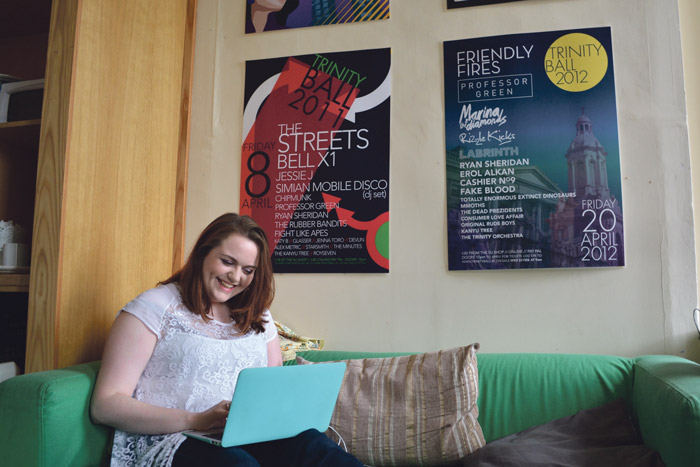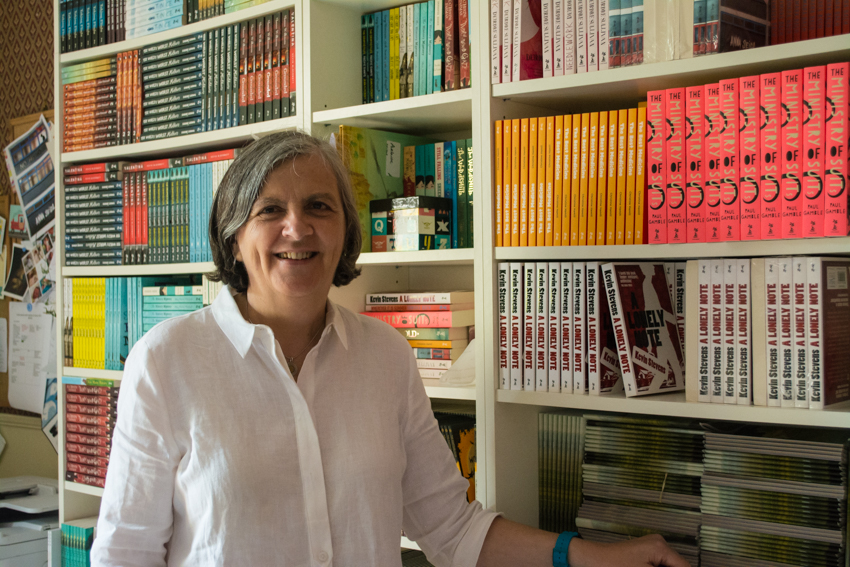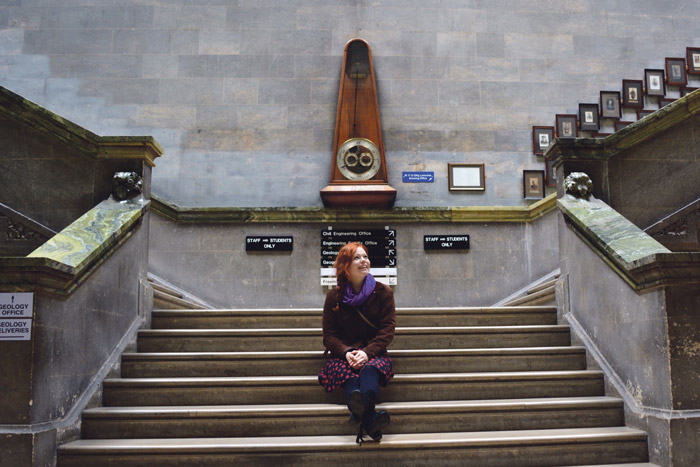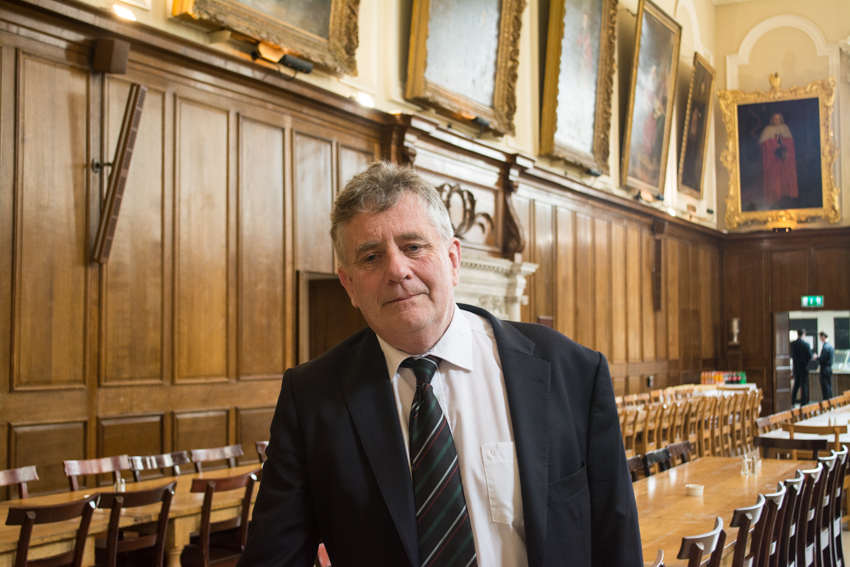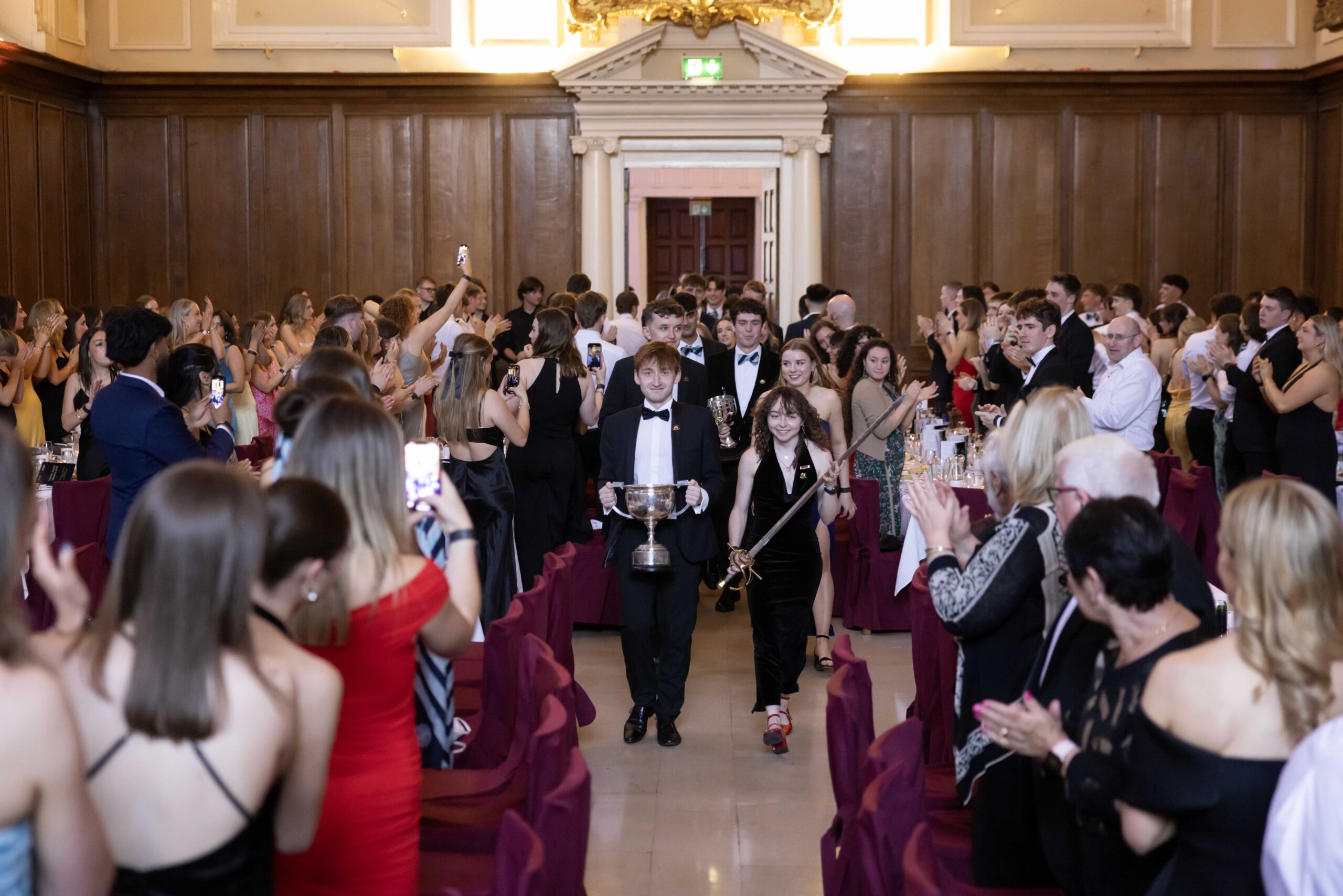Miriam Fox did not start her first-year experience in Trinity in a traditional manner. “I came in late,” the third-year PPES student says, switching from Computer Applications in DCU to, what she described as, “the course of my dreams”, in October 2013. She was determined to come to Trinity, even attending Trinity’s Freshers’ Week despite not being a student at the time. Her decision to study PPES came from her desire to study both politics and economics in the same course. “I chose Trinity because I knew I would get to do what I loved. It was easy for me to get to, I could visit my friends in other universities and I knew I would get a good degree out of it”.
Any other course that offered her the subjects she wanted to do would have forced her to go to England, so she changed to Trinity at the first chance she got, though she wasn’t completely set on it when she started. “I thought I would hate Philosophy but it turned out to be my favourite module. It gave me the chance to learn about someone else and see the world through their perspective. That was very refreshing.”
However, Miriam sums up her first-year experience as “lonely”. “Everyone was already in their cliques. I found it hard to figure out who was in my course and who wasn’t”. She found that the best way to overcome this was by forcing herself to go beyond her comfort zone: “I hung around after my tutorials and tried to approach people”, and she attributed this to her success at making new friends. “I also went to Trinity’s Freshers’ Week to see what it was like and ended up joining a bunch of societies, in particular Sc-iFi soc, who reeled her in with the promise of a Dr. Who night.” Miriam says that Sci-Fi soc led her to join Knitsoc, two societies that helped her get through first year friendship difficulties, “I turned up early to a Sci-Fi soc event and came across Knit Soc, who hadn’t finished up yet. They were so welcoming and so friendly, non-judgemental and comforting. I felt welcome.”
Despite coming into her course late, Miriam said that it was easy enough for her to catch up academically. It wasn’t until the second half of the year that she came to the conclusion that what she was doing probably wasn’t enough. “I soon realised that I needed to do work beyond lectures and essays. I had spent so much effort trying to catch up on what I had missed that I procrastinated doing any extra work.” In the end, she said she had to kick herself and say “hang on, you need to do other stuff”.
For Miriam, her first year was filled with great aspirations to do more and to get better results but soon realised that university was very different to secondary school. “No-one is going to hold your hand. You need to work on your own. It’s great to go out and meet friends independently but having to do academic work independently is hard”.
When asked if she would do her first year any differently, Miriam laughed and admitted that much of her first year was spent on social media, “I would probably get off YouTube and study.” She said that she used to consider watching videos about her subject counted as study, “but it doesn’t at all. You need to get into the library and get the material”. Miriam said that she wouldn’t stress so much about her social life. “It doesn’t matter if you don’t make friends straight away. Friends will come and awesome people will stick”.
Overall, Miriam sees her first year experience as an enjoyable one: “despite the loneliness at the beginning of the year, I had a lot of fun both socially and academically”.
I asked Miriam what advice she would give to a struggling fresher and she came up with a number of useful tips: “Take a deep breath, have a cup of hot chocolate, and take it one step at a time. Whatever is worrying you the most, deal with that first. Leave everything else to one side and pick it up later. Get back up if you fall and just keep going”.
Sinéad Loftus is a final-year History & Politics student, is the Special Projects Editor of The University Times, and edited the Dear Fresher Me series.
